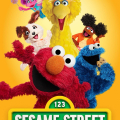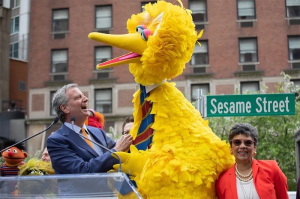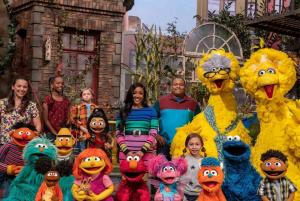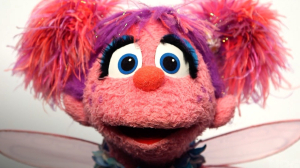
As a long-time fan of Sesame Street, it was with a mix of emotions that I discovered the beloved show had made a significant change: it moved to HBO. This children's television staple, which has been an essential part of many childhoods, including my own, was making a shift to the premium cable channel. I approached this transition with both cu...




Sesame Street
As a long-time fan of Sesame Street, it was with a mix of emotions that I discovered the beloved show had made a significant change: it moved to HBO. This children's television staple, which has been an essential part of many childhoods, including my own, was making a shift to the premium cable channel. I approached this transition with both curiosity and a tinge of apprehension.
The Legacy of Sesame Street
Sesame Street first appeared on television screens in 1969, forever changing the landscape of children's educational programming. Its unique blend of engaging characters, catchy songs, and educational content set it apart. I fondly recall mornings filled with lessons from Elmo, Big Bird, and Grover. These characters, along with the show's format, provided both entertainment and foundational learning.
Why Sesame Street Continues to Captivate
The magic of Sesame Street lies in its ability to resonate with children while subtly imparting knowledge. This isn't just a show; it’s a cultural touchstone. Part of its longevity can be attributed to its adaptability. Whether addressing the alphabet, numbers, or social issues, Sesame Street has always stayed relevant. Yet, at its core, it maintained an innocence and charm that was unparalleled.
A New Chapter with HBO
News of the move to HBO was met with a myriad of reactions. On one hand, this transition secured the financial future of Sesame Workshop, the nonprofit behind the show. On the other, it raised concerns about accessibility, given HBO's status as a premium channel. For many families, the thought of Sesame Street being behind a paywall was unsettling.
My Personal Impressions
Upon watching the new episodes on HBO, I noticed several changes. Firstly, the reduced runtime of each episode was immediately apparent. Gone were the full-hour segments I had grown used to; instead, each episode now lasted about half an hour, followed by a repeat. This made the ending feel somewhat abrupt. For children who thrive on routine, this adjustment might be more jarring than anticipated.
Celebrity Appearances: A Delight for All Ages
One of the show's trademarks, its celebrity guest appearances, remains intact. As a parent, I found these moments particularly amusing. Seeing familiar faces like Alan Cumming and Tracee Ellis Ross brought a layer of enjoyment that bridged the experience between adults and children. These guests seamlessly blended into the whimsical world of Sesame Street, offering both educational value and star power.
Educational Content: Consistent and Engaging
The educational segments, the heart and soul of Sesame Street, continue to shine. Elmo and Grover's exploration of shapes, and Oscar the Grouch's lesson on the five senses, stay true to the show's mission. The Count's enduring obsession with numbers is both nostalgic and endearing. Additionally, the new "Smart Cookies" segment featuring Cookie Monster adds a modern twist, intertwining traditional problem-solving with contemporary technology.
Adapting to Modern Times
The inclusion of modern themes and technology, like Grover taking selfies or the smart cookie tablet, feels like a nod to the world today's children are growing up in. While some of the inside jokes aimed at parents might be less frequent this season, the effort to keep the show relevant in a rapidly changing digital age is evident.
A Testament to Children's Resilience
Children are remarkably adaptable. While these changes might initially throw them off, youngsters have an uncanny ability to adjust. They may miss the familiarity initially, but the core of what makes Sesame Street beloved remains. The show’s seamless blend of education and entertainment continues to captivate with each episode.
Accessibility Concerns
The most concerning aspect of the move to HBO is the potential reduction in accessibility. Families who don't subscribe to HBO would have to wait nine months to watch new episodes on PBS. This delay might alienate some fans who have relied on free access to the show for decades. While HBO provided a necessary financial lifeline, this exclusivity might undermine the inclusive spirit of Sesame Street.
The Balance Between Nostalgia and Modernity
There's a palpable tension between maintaining the show's nostalgic charm and modernizing it to appeal to contemporary audiences. Instances of updated content, like the "Smart Cookies" segment, navigate this balance well. However, for those who cherish the original format, there might be a longing for the simplicity of days past.
The Role of Parental Involvement
In the age of tablets and smartphones, children increasingly watch television independently. Sesame Street's understanding of preschoolers' behavior—such as their reluctance to sleep and boundless curiosity—remains a testament to the show's insight. This season, there are fewer jokes tailored specifically for parents, reflecting the shift towards solo viewing by young children.
A Continued Commitment to Education
Despite its new home, Sesame Street’s commitment to education is unwavering. The incorporation of songs to highlight the letter and number of the day, characters teaching problem-solving, and segments focusing on emotional intelligence reinforce the show's educational objectives. It’s comforting to see that this core mission remains unchanged.
An Evolving Cultural Touchstone
Sesame Street has always been more than a show; it’s a cultural institution. The series has tackled varying themes over the decades, from introducing diverse characters to addressing difficult social issues. Its move to HBO symbolizes both an evolution and a nod to its enduring relevance in children’s lives.
The Emotional Connection
For many, Sesame Street is deeply linked to childhood memories. The comfort in its predictability, the joy in its characters, and the satisfaction of its educational content form an emotional bond with viewers. This connection is why changes, however necessary, can feel disconcerting.
Looking Ahead with Optimism
While the move brings about challenges and evokes mixed feelings, there's hope in seeing Sesame Street continue to thrive. The adjustments are part of the show's evolutionary journey, aimed at ensuring its presence for future generations. The core values and educational philosophy that make Sesame Street special remain steadfast.
In Conclusion
Sesame Street’s move to HBO is a significant chapter in its long history. Despite initial apprehensions, it’s heartening to see that much of the beloved show's essence remains. Children’s adaptability coupled with the show’s enduring charm ensures that Sesame Street will continue to be a cherished part of many childhoods. Here’s to hoping it remains a beacon of fun and learning for years to come.


